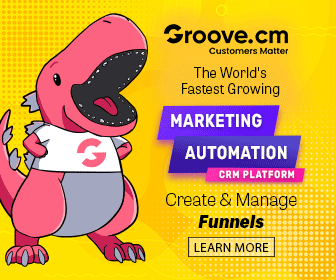As an Internet marketer, having loads of website traffic is not enough to make your online business a successful and profitable one. The truth is, generating massive website traffic is just the first step of the whole conversion or selling process.
In Internet marketing, the amount of traffic your site gets won’t be as vital as the amount of consumers who are taking action on your landing page, whether it is by enrolling to your newsletter subscriptions or buying a product. Keep in mind that in internet marketing, conversion is everything. Hence, to be successful in internet marketing, you need to spend more time in landing page optimization.
Landing page optimization plays a crucial role in determining whether your online business will fail or succeed. By optimizing your landing page, you get to increase your conversion rates, attain more qualified leads, promote multiple products, receive more backlinks and increase the effectiveness of your online ads.
On top of that, landing page optimization will help you identify which layouts, keywords, colour schemes and other aspects of your page have the best conversion rates.
If you want to know how to optimize your landing page effectively, check out these tips and pointers:
Analyse The Data
One of the most crucial aspects of landing page optimization is data analysis. As the name implies, data analysis is a process that allows you to analyse all the data on your site and landing page.
There are a lot of ways to analyse the data on your landing page.
In this case, you can use split testing (A/B Testing), traffic analysis, and data metric tools, like Optimizely, Conversion Voodoo, Concept Feedback, Google Analytics, Visual Website Optimizer and many more.
Evaluate The Problem And Apply Appropriate Fixes
With the data you have gathered about your landing page, you will be able to determine what aspects on your page are working and which are not. In addition, the data accumulated will help you know what elements on your landing page and site are in dire need of upgrades and improvements.
After evaluating the gathered data, you have to find the right solutions to the problem, and implement them as soon as possible.
Changes in your landing page do not have to be drastic or monumental. In fact, a few changes in the words used in your call to action may have a massive positive impact to your site’s conversions.
Keep Tweaking
Keep repeating the whole process for as long your online business exists. The key to having a successful online business is to adapt to changes in trends and behavioural patterns of the consumers.
Additional Tips For Landing Page Optimization
One of the most common mistakes that internet marketers would make is having a multitude of CTAs (call to actions) on a single landing page. If you ask a visitor to choose between 50 CTAs, chances are he or she will bounce instantly. But if you opt to focus on less of them, you will most likely get the visitor to take the action you want. Make your landing page look more credible by adding trust signs like guarantees, trust budges and testimonials. In this case, only use them when they are relevant to your service and offer. For instance, if you are accepting payments through PayPal, try to include a PayPal logo or a PayPal Verified seal on your site or landing page. Make sure to increase the speed on your landing page. Internet traffic loses interest quickly when they land on slow loading websites.Give your visitor a good reason to buy your product or sign up to your newsletters. You can lure your visitors into subscribing by giving away free eBooks or discount coupons.









.jpg)



.jpg)


